Rachmaninov - All-Night Vigil (Vespers)
Rachmaninov - All-Night Vigil (Vespers)
For being such utterly beautiful music, this piece doesn't seem to get a whole lot of attention. That's a shame, because you can't help but be captivated by it once you listen. Theses are the dangers of extolling a composer for a particular section of his work; this unfortunately tends to smother the hidden gems in his or her output. The Vespers aren't exactly hidden, but they aren't clogging the shelves either.
Rachmaninov - All-Night Vigil (Vespers)
Rachmaninov’s “All Night Vigil” (“Vsenoshchnoe bdenie”) is generally known in English-speaking countries as the “Vespers,” but this translation is “incorrect”. However the usage of the title “Vespers” is well-established, and is not likely to be superseded any more. “Vespers” is after all the title usually employed to describe evening services in both the Anglican and Catholic liturgies.
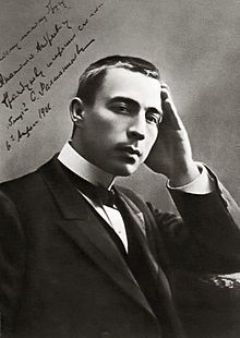
Sergey Rachmaninov
Rachmaninoff composed the “All-Night Vigil” in less than two weeks in January and February 1915. ‘The All-Night Vigil’ is perhaps notable as one of two liturgical settings (the other being the ‘Liturgy of St. John Chrysostom’) by a composer who had stopped attending church services. As required by the Russian Orthodox Church, Rachmaninoff based ten of the fifteen sections on chant. However, the five original sections (numbers 1, 3, 6, 10, & 11) were so heavily influenced by chant that the composer called them "conscious counterfeits".

All-Night Vigil - score
When celebrated at the All-night vigil, the orders of Great Vespers and Matins vary somewhat from when they are celebrated by themselves. In parish usage, many portions of the service such as the readings from the Synaxarion during the Canon at Matins are abbreviated or omitted, and it therefore takes approximately two or two and a half hours to perform. The Psalms are numbered according to the Septuagint, which differs from that found in the Masoretic.
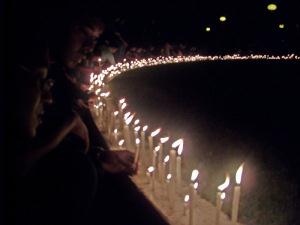
All-Night Vigil - Christmas Vigil
Rachmaninoff's work is a culmination of the preceding two decades of interest in Russian sacred music, as initiated by Tchaikovsky's setting of the all-night vigil. The similarities between the works, such as the extensive use of traditional chants, demonstrates the extent of Tchaikovsky's influence; however, Rachmaninoff's setting is much more complex in its use of harmony, textual variety and polyphony.
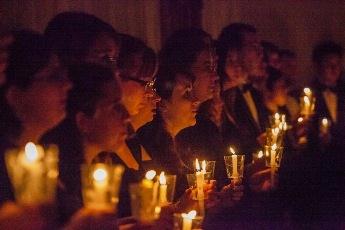
Christmas Vigil
The first performance was given in Moscow on March 10, 1915, partly to benefit the Russian war effort. Nikolai Danilin conducted the all-male Moscow Synodal Choir at the premiere. It was received warmly by critics and audiences alike, and was so successful that it was performed five more times within a month. However the Russian Revolution of 1917 and the rise of the Soviet Union led to the government condemnation of religious music, and on 22 July 1918 the Synodal Choir was replaced by a non-religious "People's Choir Academy". It has been written that "no composition represents the end of an era so clearly as this liturgical work".
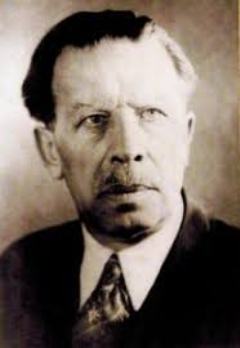
Nicolai Danilin
The first recording of the Vigil was made by Alexander Sveshnikov with the State Academic Russian Choir of the USSR for the Soviet Melodiya label in 1965 - exactly half a century after the work's first performance. Because of Soviet anti-religious policies, this record was never available for sale within the USSR, but was only made for the export market and private study. This recording still has a legendary reputation, in part because of its extremely strong low basses, but also because of the solos by Klara Korkan and Konstantin Ognevoi.
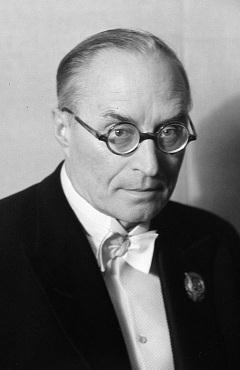
Alexander Sveshnikov
Anyone familiar with this repertoire, so intimately associated with Russian culture and religious tradition, who happened to be looking for an exemplary recording, might understandably assume that the ideal performance would be owned by a Russian church or concert choir; after all, these groups, theoretically at least, possess both the singular vocal quality and practiced technique, along with the inherent interpretive understanding, to set the standard for all others. The work first became known outside Russia from Melodiya recordings in the 1970s. For a long time the piece was regarded as the exclusive preserve of Soviet choirs, if only because the sometimes subterranean writing for the basses was considered to be beyond the capacity of non-Slavic voices.
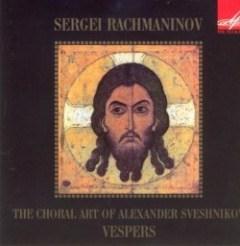
Rachmaninov - Vespers, 1965
Until the late 1980s non-Russian recordings were rare, while those made in Russia had to contend with official disapproval from the religion-leery Soviet state. Since then, both Russian and Western recordings have come fast and furious. Interpretations are as varied as for any major work of the 20th century, with everything from magnificently rumbling but tonally insecure Russian singers to precise but pale Western cathedral choirs taking on the work.
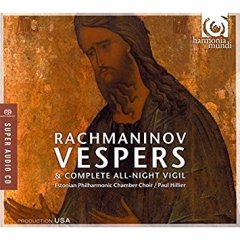
Rachmaninov - Vespers, Hillier 2005
The Rachmaninov’s Vigil has been set to music most famously, whose setting of selections from the service is one of his most admired works. The “All-Night Vigil” has a myriad of different versions available, and your taste in vocal style will have everything to say about which kinds of performance you will prefer over the long term.
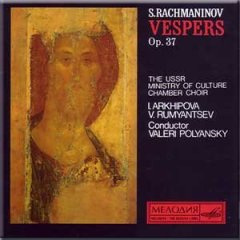
Rachmaninov - Vespers, Polyanski 1986
Movements: 1 Приидите, поклонимся (Priidite, poklonimsya) / O Come, Let Us Worship (Venite adoremus) 2 Благослови, душе моя (Blagoslovi, dushe moya)/ Praise the Lord, O my soul (Benedic anima mea) 3 Блажен муж (Blazhen muzh) / Blessed is the Man (Beatus vir) 4 Свете тихий (Svete tikhiy) / Gladsome Light 5 Ныне отпущаеши (Nyne otpushchayeshi) / Nunc dimittis 6 Богородице Дево, радуйся (Bogorodishche Devo, raduysya) / Ave Maria 7 Шестопсалмие (Shestopsalmiye) / Glory be to God 8 Хвалите имя Господне (Khvalite imya Gospodne)/ Praise be the name of the Lord (Laudate Dominum) 9 Благословен еси, Господи (Blagosloven yesi, Gospodi) / Blessed be the Lord 10 Воскресение Христово видевше (Voskreseniye Khristovo videvshe)/ The Veneration of the Cross 11 Величит душа Моя Господа (Belichit dusha Moya Gospoda) / Magnificat 12 Славословие великое (Slavosloviye velikoye) / Gloria in Excelsis 13 Днесь спасение (Dnes' spaseniye) / The Day of Salvation 14 Воскрес из гроба (Voskres iz groba) / Christ is Risen 15 Взбранной воеводе (Vzbrannoy voyevode) / To the Mother of God
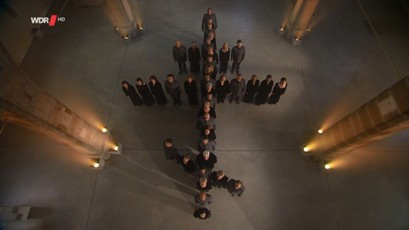
WDR Rundfunk Choir (Nikolas Fink) sing Rachmaninov's Vespers
Rachmaninov – All-Night Vigil (Phoenix Chorale-Kansas City Chorale, Charles Bruffy)
Last Updated (Saturday, 23 December 2017 22:27)








